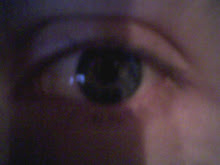* * * * *
I I I
* * * * *
The motorcycle was named Molly. She was a 1974 Harley Sportster with a faded aquamarine body and chrome hardware. She sat in the back of the garage, having remained there, untouched, for weeks. The rest of the garage was cluttered, a disheveled mess of parts and tools, but the bike stood alone on a battered wooden pallet like a shrine, a memento of the long journey ahead, and the painful journey behind.
Beyond the clothes on his back and the money in his pocket, Molly was the only thing Miles brought with him when he arrived in Battle Mountain five years before.
For a while, Miles suspected he had already died, and the road was his own personal hell. The drinking helped a little, pushing the voice back, but the dreams still haunted him – dreams of death and dreams of failure, dreams of defeat and of horrible pain, dreams of everyone he had ever lost. Faces haunted him, just outside his peripheral vision, sorrow-filled faces that filled him regret.
The city was quiet; quiet to his ears and quiet to his mind. Miles had not chosen the city as much as he had just fallen into it; after months of hard riding, desperate to escape and start again, Miles had stumbled through northern Nevada, desperate and hopeless, and was startled to find that the farther he rode, the quieter the voice became, until it faded to almost nothing.
Miles landed, softly, in a small town where the people were quiet and left him alone. Miles drank; he settled in and tried to get comfortable. As a trade, his hands quickly remembered their way around an automobile; he found his father’s passion for fixing cars came naturally to him as well, and worked for Dick Maybury’s Auto. Dick Maybury was a veteran and an eccentric, a introverted widower who lived above the shop and who would not talk about his wife, would not talk about his time in the service, would not talk about his childhood – any questions not about automobiles would be met only with a dismissive wave of his hand. Miles kept quiet and did what he was told, and Miles and Dick Maybury forged what could not quite be called a friendship, instead perhaps a healthy respect for each other until Dick died peacefully in his sleep a year later, and – having no heirs – left the shop to Miles.
For years Miles continued to operate the shop, and spent the leftover hours in the day drinking. The voice faded into the background, the feelings of paranoia subsided and his breakdowns came less and less often. He drank, he waited for something he did not quite understand, and for another year he lived alone and lonely, haunted but no longer tortured. Miles waited, he drank, and the voice faded into near obscurity.
Until the woman, came – the dark-haired woman with the husband and two boys – and the cycle began again. The woman came – with her dark hair and eyes that sparkled like diamonds – and Miles watched her die in the road, her head crushed against a concrete pylon, her husband staring blankly at her, helpless and immobile. The headaches, the fear and paranoia, the overwhelming sense of failure; Miles was struggling to breathe, flailing and grasping at nothing, slipping under the surface: a man, drowning in the open air.
Miles paced around the attached garage of his house, unsettled and impatient. A battered sign hung above his head, swaying in the low breeze: Maybury Auto, Repair and Maintenance. Miles wore dirty overalls and a wrench stuck from his pocket. He had intended on servicing his bike, oiling her gaskets and topping off her fluids, but something weighed on the back of his mind, and he could not focus. The weather report predicted clear skies the following morning, perfect for a ride out into the mountains, perfect for Miles to clear his head, but he continued to pace. Something ate away at his thoughts; he was unable to center himself, unable to settle down.
The morning sun blossomed over the horizon, a great orange fireball against the low mountains.
Miles had disappeared into the bottle for three days, not leaving the house, hallucinating about the dark-haired woman and her two children. She was smiling at him; she was so kind, she had such light, until she was thrown from her vehicle and died in the road.
On the fourth day Miles woke, his head pounding, echoes of memories slipping through cracks in his conscious mind like water through his fingers.
Miles left the house at dawn, walking down the long dirt road to the river. He stood, overlooking the water, his mind awash with regret, feeling more alone than he had in years. He could connect at the river; the water was a conduit to the world he’d left behind.
